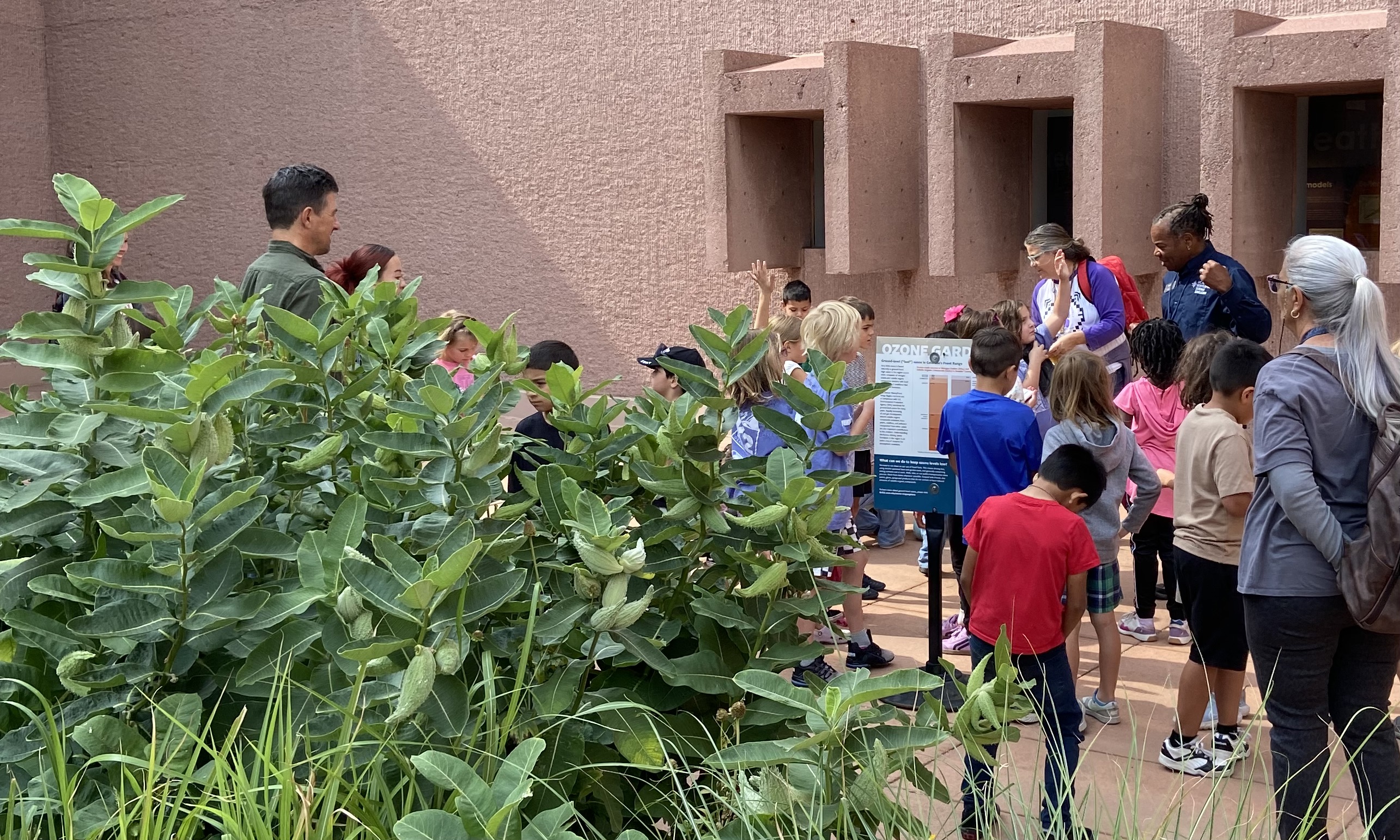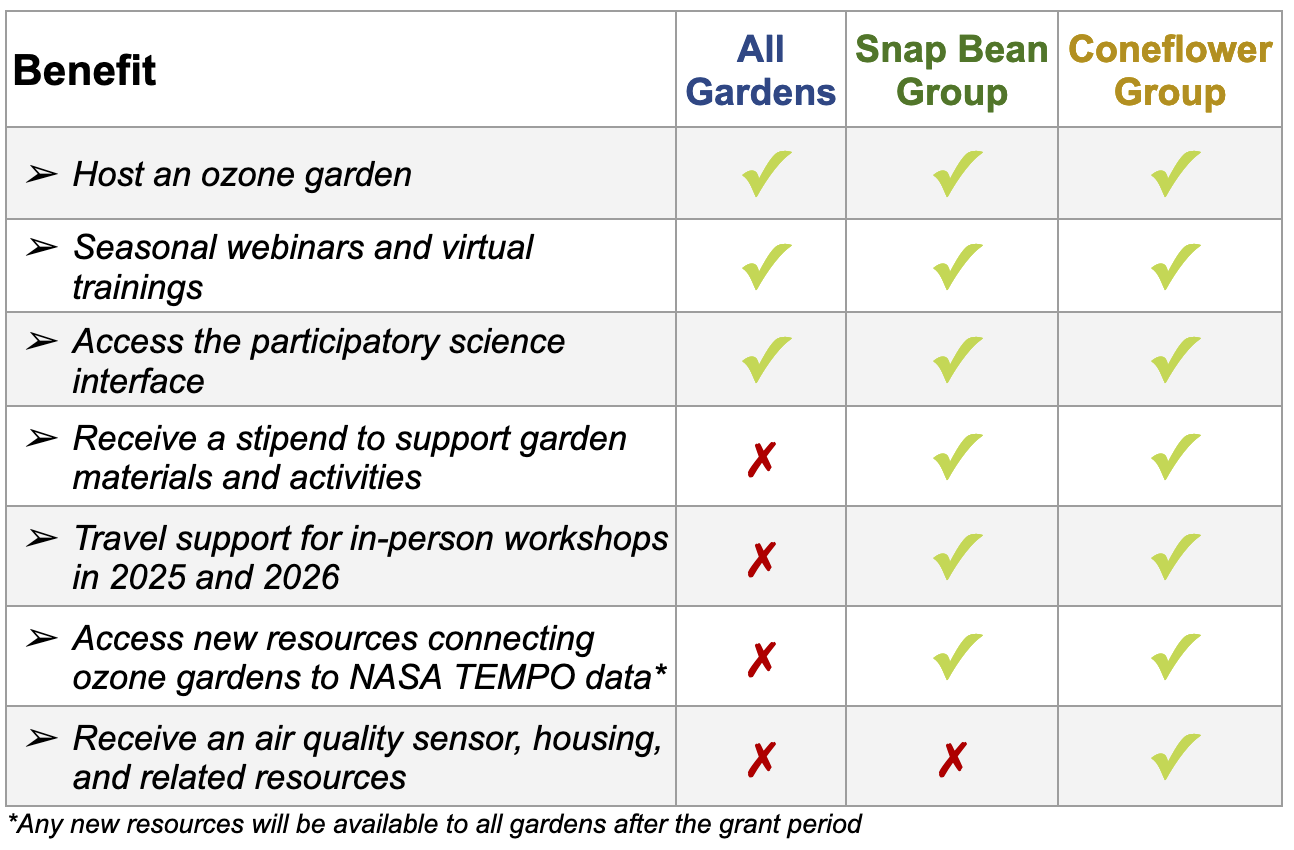Additional Garden Network Opportunities

With funding from a NASA TEAM II grant funded award (award number #80NSSC23M0080), the National Ozone Garden Network will have additional opportunities and activities from 2024-2026.
Recruitment
Thanks to all who applied to this round of recruitment. We will be recruiting additional gardens for the 2026 growing season in fall 2025. Anyone is welcome to join the general garden network at any time, by completing the Ozone Garden Manager Registration.
There are two groups who receive additional benefits, and have extra requirements, as a part of the grant: the Snap Bean Group and the Coneflower Group. Both of these Groups have limited spots available, but all gardens are welcome to join the National Ozone Garden Network.

Read more about these groups’ benefits and requirements in our Ozone Garden Involvement One Pager.
To apply for a garden please consider the following information before completing an application:
- Do I have a garden plot location? Is this location accessible to the public for free?
- Who will be the lead point of contact for the Garden Leads and grant evaluator?
- Who will be managing garden care? Who will be collecting data?
- How will programming with the general public occur? Which populations will spend guided time learning about the ozone garden?
In-Person Workshops
Those who are involved in a Garden Group will receive travel coverage for one person to come to Boulder, CO for in-person workshops on August 12-14, 2025 and August 11-13, 2026. The in-person workshops will be hosted at the NSF NCAR Mesa Lab, featuring the original ozone garden.
Gardens that are not involved in the Garden Groups may be allowed to send additional representatives on their own travel funds if they would like to. Our workshop location does have a capacity limit, so priority will be given to the covered Garden Group representative.
Resources
Thanks to the grant funding, we will be developing additional resources for ozone gardens to use. This includes engaging activities to use with K-12 audiences and adults in your garden, and signage for gardens to print and use. These resources may become available to the Garden Groups before they are shared more widely with the entire network.
Some of the new resources developed will connect your audiences with data collected by the NASA TEMPO Satellite. TEMPO was launched in 2023 as a stationary satellite over North America, primarily collecting data over the contiguous United States and Mexico. Anyone can explore the NASA TEMPO Data on their own!
For any questions about creating an ozone garden, joining the National Ozone Garden Network Google Group, or about the grant-funded activities, email the Garden Leads team.
